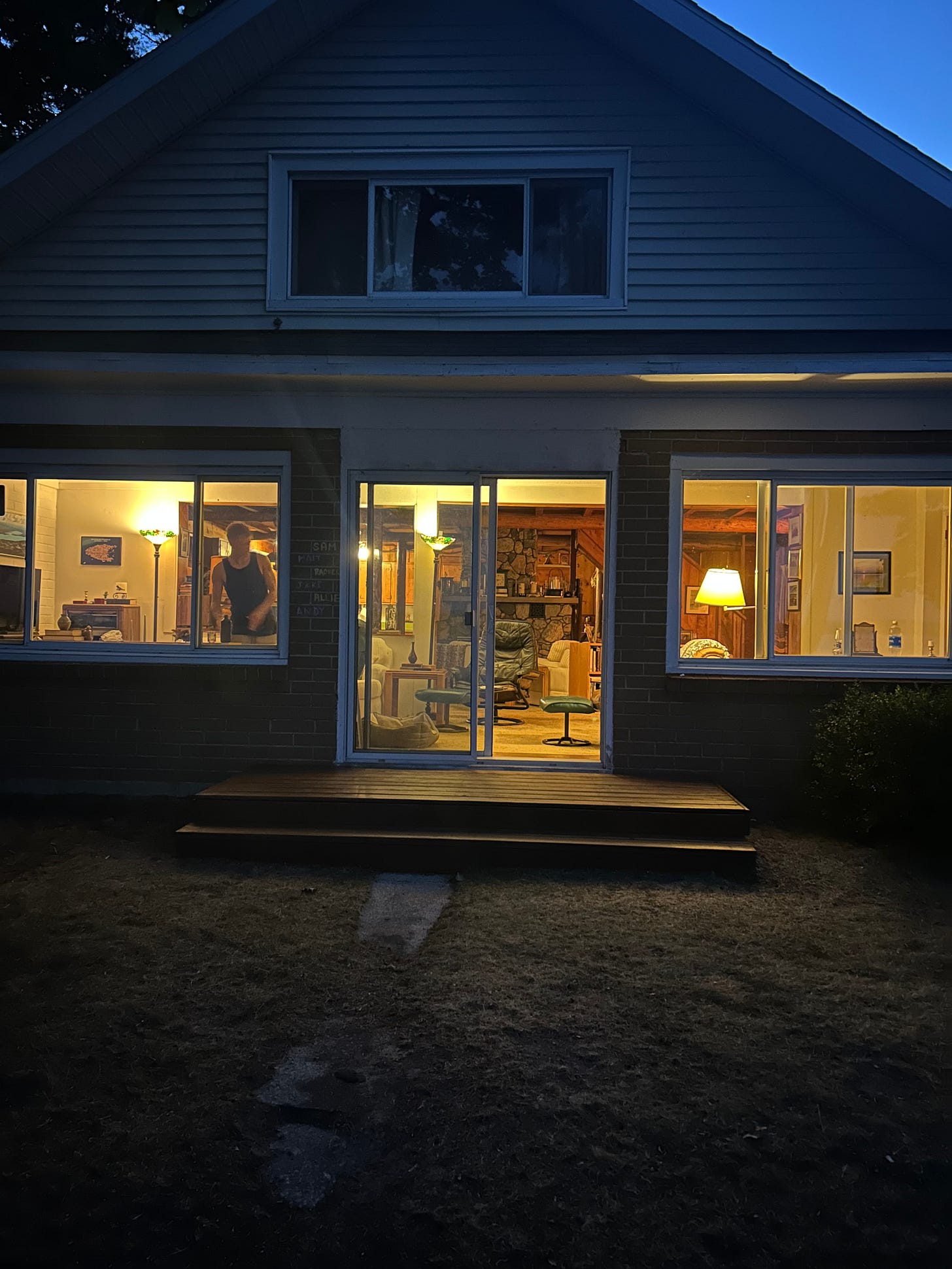I have found it's best to assume, even if it's not totally the case, that any sense of disconnection I feel from my environment, or any negativity at all—be it FOMO, insecurity, or hopelessness—reflects a disconnection or discontentment within.
Because, for instance, no matter how many times I change my environment, the novelty of whichever place I relocate to eventually wears off, and the same problems I had before arise again.
In other words, if I think it is the case that something out there made me sad, the truth is that the thing I thought made me sad simply brought forth whatever sadness lay within, and to get away from that thing will cause no actual improvement in my condition.
While it's true that certain environments are more conducive to well-being than others, to habitually place one's sense of well-being on the world around rather than the world within is to relinquish responsibility for one's internal state and, therefore, to relinquish the ability to implement lasting change—not to mention, the sort of change we deeply need and want . . . The sort of change we're chasing when we take a vacation, or go to the bars, or play video games.
So, how may we reconnect within? How may we take responsibility for our state?
With intention. You see, I only ever want to be somewhere else when I’m not acting intentionally in the present.
It’s important we ask ourselves, "Do I intend to do what I'm doing?" If not, then we must wonder what it is we truly intend to do and why we are not doing it. The key here is "do." What must we do differently?
You see, most people think that internal change merely requires a change of thought. But this is not the case since thought, too, is a habit that is reinforced by action.
Indeed, thought itself is but another type of action.
And so, though it is the world within we must change, the change we must make is in our actions, which most deeply affect our internal state.
The question is, then, how intentional are we with our actions? Herein lies the key to lasting change.
The degree to which we feel negative or positive correlates with how intentional we are. The more intentional we are, the more positive we feel.
Why? Well, for various reasons. Intentional action correlates with a greater sense of purpose; intentional action tends to be more healthy than impulsive action; intentional action is typically less regrettable, etc.
But most importantly, intentional action is the sort of action our deepest, most true selves want, and, therefore, to act intentionally is to act deeply . . . And to act deeply is to make way for fulfillment.
So, what does it mean to be intentional? Well, it means to have a clear reason, or a why, for an action. This reason is typically associated with both short and long-term "goals."
And no, I'm not talking about SMART goals or anything like that. I'm talking about intuitive dreams . . . As in, what sort of life would you like to live? (I'll have to write another post about getting to know yourself).
Young people today, especially, have made a habit of acting without intention, pursuing instead their impulses. Passive consumption—be it food, short-form content, or substances—undermines not just our internal chemistry but our intention because each chip more munched, each video more scrolled, each drink more downed, without intention, is one action closer to reinforcing a habit of passivity.
And when you live passively, you're far more likely to externalize—meaning you seek external change to implement lasting internal change—since you are letting life happen to you rather than you happening unto it (I think you know what I mean).
If you default to externalizing blame for negativity you experience, you'll always be searching for solutions outside of yourself . . . Be it distractions, state-altering substances, vacations, or relationships.
In doing so, you'll find yourself on an oft-empty, perpetually desperate, and fleeting search.
But if you default to looking within the moment you feel any negativity, you'll not only slowly cultivate the ability to live well regardless of your external circumstances, but you'll more than likely cultivate the sort of "dream life" you've always aspired to.
All this is easy to say and acknowledge but not so easy to practice because we don't realize we're doing it right now. Having not yet cultivated habits of curiosity and patience to sit with our feelings, we're unwilling to take responsibility here, at this moment, for the urge we have to go elsewhere.




